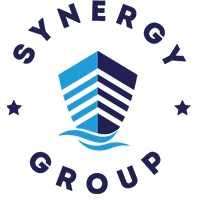Duel Fuel Vessel Management

Important Elements of Managing Dual-Fuel Vessels
1. Storage and Handling of Fuel
Specialised handling and storage systems are needed for dual-fuel vessels. For instance, cryogenic tanks and regasification systems are required for LNG-powered vessels in order to guarantee the safe and effective use of fuel. Because of their distinct storage and combustion properties, hydrogen and ammonia fuels require even more sophisticated treatment.
2. Propulsion and Engine Systems
The smooth transition between conventional and alternative fuels is a feature of contemporary dual-fuel engines. Depending on the needs of the operation, these engines can run in petrol, liquid fuel, or dual-fuel modes. Advanced two-stroke and four-stroke dual-fuel engines that optimise efficiency and reduce emissions have been developed by top engine manufacturers such as MAN Energy Solutions and Wärtsilä.
3. Bunkering and Fuel Supply Activities
For dual-fuel vessels, bunkering calls for specific infrastructure. Terminals with cryogenic systems, truck-to-ship, or ship-to-ship transfer methods are examples of LNG bunkering. With major hubs like Rotterdam, Singapore, and Houston setting the standard, ports all around the world are increasing their capacity to bunker LNG.
4. Crew Competency and Training
A highly skilled crew is needed to operate dual-fuel ships. Crew members need to comprehend:
Safe management of alternative fuels, such as ammonia, hydrogen, and LNG
Procedures for responding to gasoline spills or malfunctions in an emergency
Enhanced fuel-switching protocols
adherence to changing international laws
Crew proficiency in dual-fuel operations is ensured by training programmes approved by groups such as the International Maritime Organisation (IMO) and the Society for Gas as a Marine Fuel (SGMF).
5. Safety and Maintenance Procedures
Maintenance of dual-fuel vessels entails routine examinations of:
Systems for storing and supplying fuel
LNG or other gas cryogenic and pressure-relieving systems
Performance of the engine in various fuel modes
Systems for treating exhaust gases and controlling emissions
Strict adherence to safety protocols is required, especially for extremely volatile fuels like ammonia or LNG. In order to prevent accidents, leak detection, emergency shutdown systems (ESD), and adequate ventilation are essential.
Visit us at
https://www.synergymarinegroup.com/services/dual-fuel-vessel-management/
- Questions and Answers
- Opinion
- Motivational and Inspiring Story
- Technology
- Live and Let live
- Focus
- Geopolitics
- Military-Arms/Equipment
- Sicurezza
- Economy/Economic
- Beasts of Nations
- Machine Tools-The “Mother Industry”
- Art
- Causes
- Crafts
- Dance
- Drinks
- Film/Movie
- Fitness
- Food
- Giochi
- Gardening
- Health
- Home
- Literature
- Music
- Networking
- Altre informazioni
- Party
- Religion
- Shopping
- Sports
- Theater
- Health and Wellness
- News
- Culture

